The Kenya National Chamber of Commerce & Industry (KNCCI) plays a crucial role in issuance of the Certificate of Origin (COO) which is an export declaration document stating in which country a commodity or good is manufactured.
In order to sensitize the public on the export processes and also to get to understand the challenges faced by exporters. KNCCI in collaboration with various stakeholders in the trade industry organized the 3rd Edition of the exporters roundtable which took place at Pride in Azzure Westlands.
KNCCI CEO Mr. Patrick Nyangweso officiated the event which was attended by various exporters from different sectors, Ambassadors and trade industry key players.In his opening remarks he appreciated all participants for being present and paying attention to the theme of the forum which was ’“Breaking Barriers, Building Bridges: Empowering Kenya’s Exporters.”
He emphasized on KNCCI role in digitizing the Certificate of Origin system, which has streamlined the ease of doing business for exporters when acquiring the export document.
KNCCI iSOKO Kenya representative Mr. Brian Omondi ,urged the participants to register on the digital platform which provides real time market and trade information that will have businesses adopting latest trends in the market across five countries;Kenya, Rwanda, Burundi, Uganda and Tanzania.
The Chamber President Mr. Richard Ngatia in his key remarks noted that exporters play a pivotal role in driving our country’s economy. Especially in bringing in the much-needed foreign exchange. He noted that the government on the other hand has been putting in place policies to support the businesses people. The notable ones are reversing the cargo clearing from Naivasha dry port to Mombasa, Finance bill 2023, subsidized inputs i.e., seeds and fertilizer, high taxation on imports to protect our agricultural products, improved laws to regulate quality of Agricultural products, conservation of natural resources, climate change, economic diplomacy travels to Israel, United Kingdom, South Korea, United States of America, and Rwanda.
The chamber through its trade development department has done market intelligence on our key products of export i.e., Tea ($262M), cut flower ($766M), Coffee ($262M), Refined Petroleum ($247M) and Titanium ore ($194M). These products are exported mainly to Uganda ($831M), Netherlands ($576M), USA ($566M), Pakistan ($487M) and United Kingdom ($465M). The findings point to a huge opportunity still existing in our traditional markets, emerging markets and frontier markets that we need to tap into through innovative product development, diversification and knowledge sharing about the market needs
Exporters opportunities exist in Product development, Mining, Textile, exporting labour, cement, utilising trade agreements i.e., AfCFTA, AGOA, EU, Agriculture product aggregation, digital financing, port of entry and exit infrastructure i.e., cold storage, technology transfer, capacity scholarships trainings, mentorship and coaching programs by ITC, ICC and WCF.
He concluded my urging all participants, government agencies and to join hands and cultivate an export driven economy.
KNCCI members were also given an opportunity to pitch their business solutions to exporters;
- Export Trading Group (ETG) Is a global player with a diverse portfolio of expertise across multiple industries, encompassing Agricultural inputs, logistics, merchandising and processing, supply chain optimization, digital transformation and energy.
- BCS Kenya Limited is experienced in managing the cold chain, conditioned goods storage, handling and transport for many decades, working in accordance with Dutch and European standards, in the Kenyan and international market for conditioned storage and logistics.
Micro & Small Enterprises Authority (MSEA) Director, Strategy, Planning & Coordination Mr. Richard Ipero sensitized the participants on the role in supporting SME participation in export trade .MSEA organizes trade fairs, exhibitions, and trade missions to promote SME products and services in international markets. They facilitate SMEs’ participation in these events, which serve as platforms for networking with potential buyers, distributors, and partners. MSEA may also assist SMEs in participating in international business matchmaking programs.
The government regulators play a key role in the export development, In reference to the theme ; The Kenya Revenue Authority (KRA) works closely with other government agencies such as Kentrade and Agriculture and Food Authority (AFA) in ensuring smooth customs procedures for exporters. They streamline and simplify export processes, including documentation, customs clearance, and cargo handling, to minimize delays and improve efficiency. KRA works to reduce trade barriers, implement trade facilitation measures, and enhance automation and digitization of customs procedures to expedite export transactions.
The Kenya Plant Health Inspectorate Service (KEPHIS) plays a significant role in supporting exports by ensuring the phytosanitary compliance of agricultural products. EPHIS is responsible for issuing phytosanitary certificates, which are essential documents that certify that exported agricultural products meet the phytosanitary requirements of the importing country. These certificates verify that the products are free from pests, diseases, and other contaminants that could pose a risk to the importing country’s agricultural sector.
Export Processing Zones(EPZs) aims to attract and facilitate export-oriented industries by offering various incentives, infrastructure, and streamlined procedures. EPZs offer a range of incentives and benefits to encourage businesses to operate within the zone and engage in export activities. These incentives may include tax exemptions or reductions, duty-free imports of raw materials, machinery, and equipment, simplified customs procedures, and streamlined administrative processes. These benefits help reduce the cost of production and enhance the competitiveness of exports.
The Kenya National Federation of Jua Kali Associations (KNFJKA) collaborates with financial institutions and relevant agencies to improve access to export financing for Jua Kali enterprises. They help artisans access export credit facilities, trade finance schemes, and other financial resources specifically tailored for export activities. This support enables Jua Kali enterprises to secure the necessary funds to invest in production, packaging, marketing, and other export-related expenses.
To explore the export development and value chain , A panel discussion was conducted amongst members who were able to articulate solutions offered by their businesses for the development of trade.
KCB Bank Kenya being the main sponsor the event sensitized the exporters on the trade finance solutions offered by the bank for both llocal and cross-border trading through operations and liquidity financing, as well as mitigating risks inherent in trade.
There are a range trade finance solutions based on your unique needs; LPO financing and advanced payment financing.
Ms.Rosemary Kariuki. CECM Nairobi City County representing the Governor Nairobi county appreciated KNCCI for the continuous engagement in enhancing a conducive business environment within Nairobi .
KNCCI appreciates all the participants for attending the exporter’s roundtable and seeks to improve on the trade barriers to improve trade.

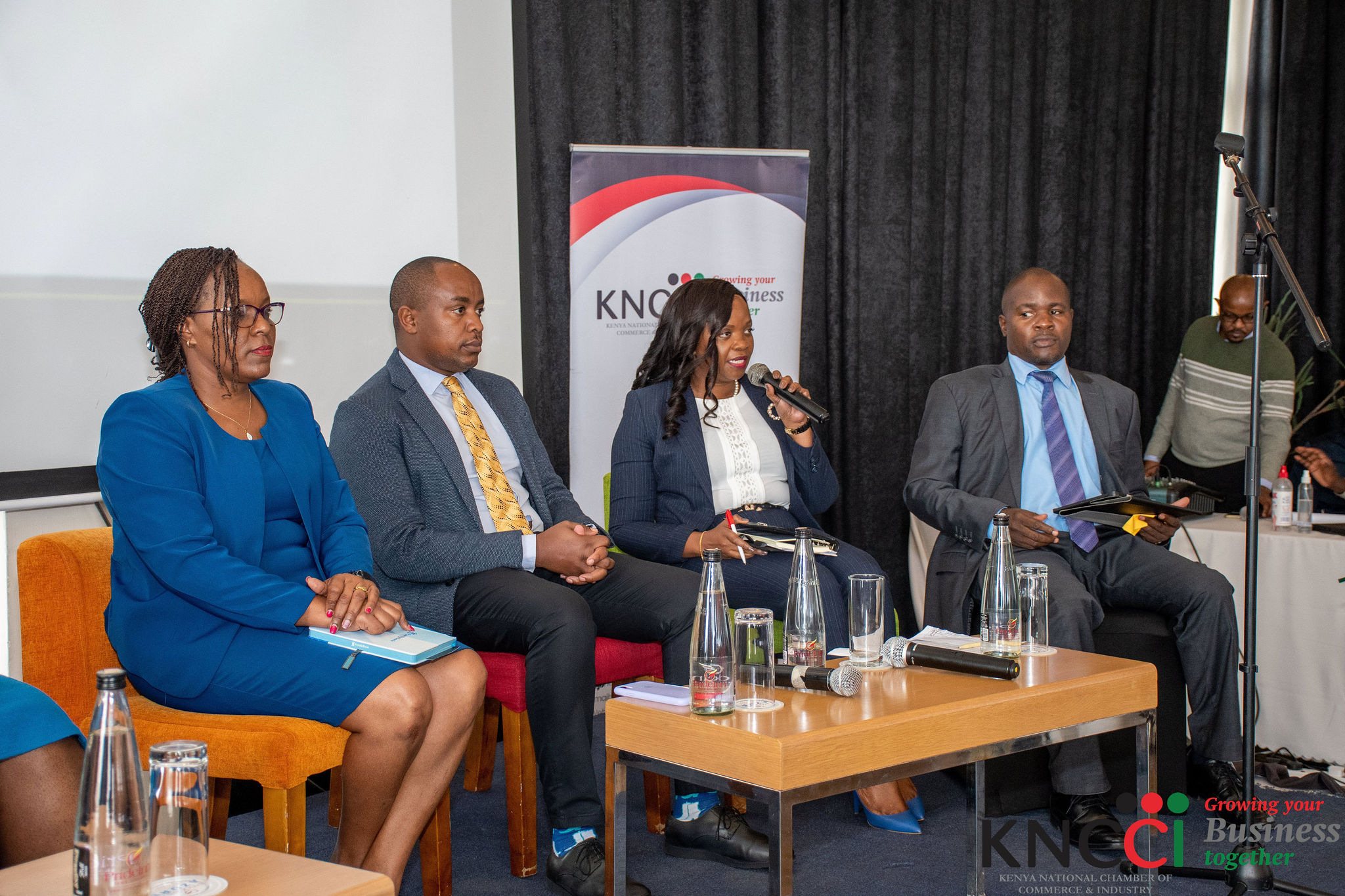
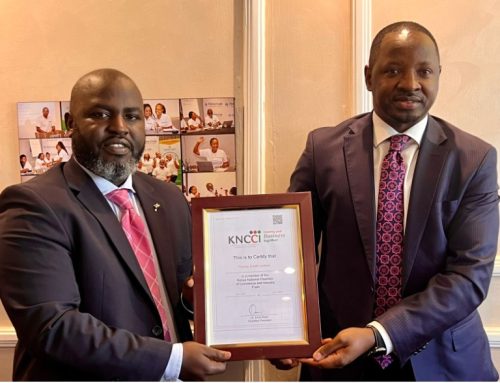

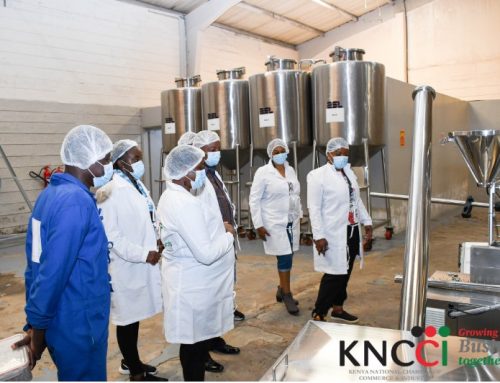
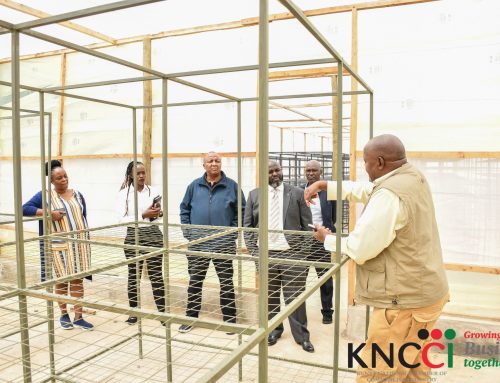
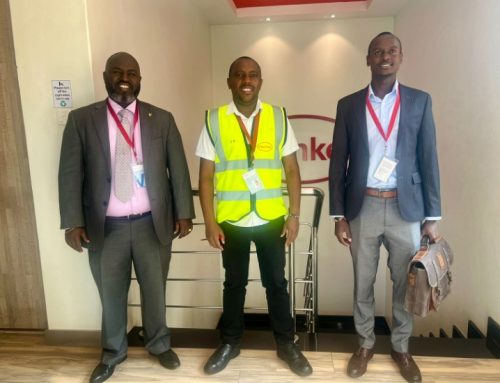
Leave A Comment